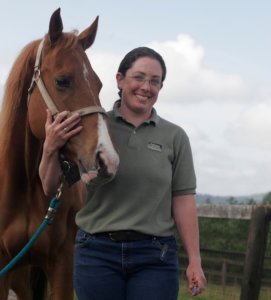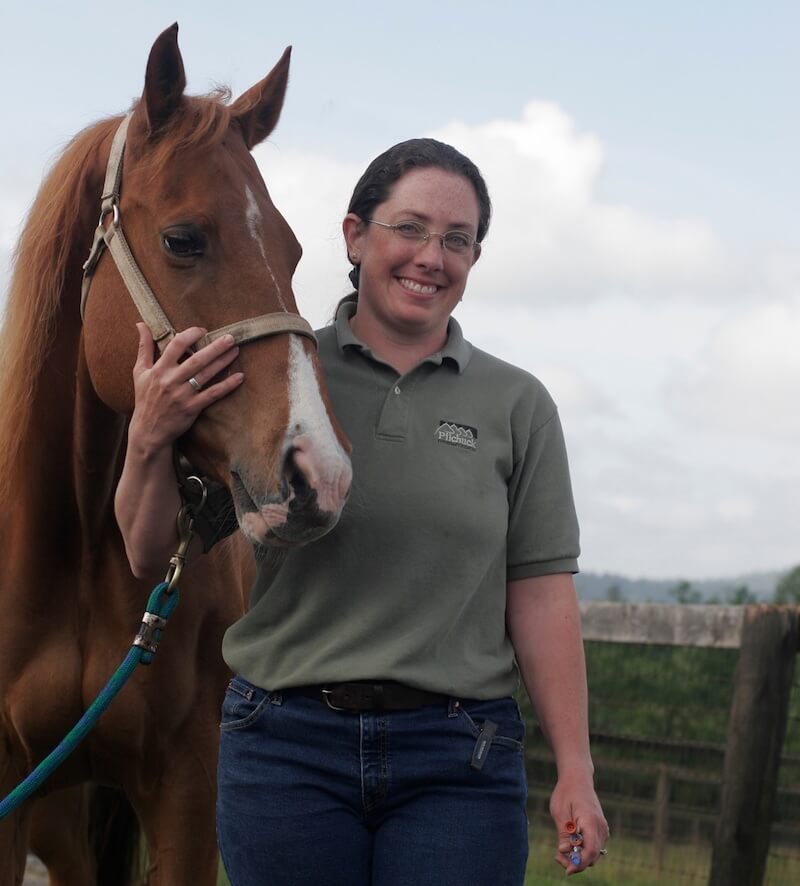Ensuring a Long and Happy Life for Your Equine Companion
By: Jennifer Miller, DVM, IVCA

Everyone knows how important it is to get yearly wellness exams by an MD, dentist, and ophthalmologist. It is just as important for your horse to receive regular wellness exams from your veterinarian to keep him/her in excellent health and to head off minor problems before they become major issues. Only your veterinarian can recommend a proper wellness program for your horse as the current health, lifestyle, and age of your horse are important factors in making recommendations. Even though exact recommendations are based on the particular horse in question, in general the following recommendations for care are applicable to every horse.
Yearly wellness exams are necessary for your veterinarian to assess the current state of health of your horse, discuss any concerns you may be having about your horse, and make a plan for treatment and maintenance for the upcoming year. Wellness exams include a complete physical, soundness exam if there are any concerns, dental check, and ocular exam. Blood work may be recommended if your horse is older or if there are any concerns on the overall health of the horse. As animals get older, their immune systems are less efficient and their organ function may decline. They are also prone to age-related diseases, such as Cushing’s disease, that can be effectively screened for using easy blood tests.
As part of the wellness exam, your veterinarian will decide which vaccines your horse needs based on his/her risk assessment. Proper vaccination ensures that your horse is protected from deadly diseases and illnesses that can sideline him/her, resulting in lost riding time or even worse. A young horse that is campaigning on the show circuit will have different needs for vaccination versus your old retired friend that hangs out at home and does not come into contact with other animals.
Just as you need regular dental exams so does your horse. While the scope of what happens during your horse’s dental exam/treatment is different from yours on some levels, there are also similarities. We have modified the horse’s diet and eating pattern through domestication and confinement, which can potentially cause problems. Your veterinarian will examine your horse’s teeth for abnormal wear, sores, and periodontal disease among many other things. Every dental exam provides the opportunity to perform routine preventative dental maintenance. Regular routine dentals can prevent many minor problems from turning into major problems by the time your horse is older. Sadly, we too often see geriatric horses that have a hard time maintaining their weight, are having discomfort or pain, or are in general poor health due to little or no dental care in their younger years. Mature horses should get a thorough dental exam at least once a year. Proper care equals comfort, efficient feed utilization, and maybe better performance and even longer living. While good dental care results in your horse having the most comfortable and efficient set of teeth he/she can have, eventually teeth stop erupting, and the teeth wear out. Once an older horse’s teeth have reached this stage, it may be necessary to supplement your horse’s diet with a complete feed to ensure he/she is getting the caloric intake required to maintain a healthy weight. Your veterinarian can make recommendations on changing your horse’s diet as he/she goes through the different stages of life.
Long gone are the days of deworming every horse the same way. Regular fecal exams and strategic deworming are the current recommendations. How often your horse needs to be dewormed depends on its living situation and current parasite load. Parasites can cause extensive internal damage, and you may not even realize your horses are heavily infected. At the very least, parasites can lower resistance, rob the horse of valuable nutrients, and cause gastrointestinal irritation and unthriftiness. At their worst, parasites can lead to colic, intestinal ruptures, and death.
With regular wellness care, horses are living happy and healthy lives well into their 20s these days. By having regular exams and preventative maintenance recommended by your veterinarian, your equine companion and you can enjoy a long and active relationship for many years.
Published December 2011 Issue

The Colorado Horse Source is an independently owned and operated print and online magazine for horse owners and enthusiasts of all breeds and disciplines in Colorado and surrounding area. Our contemporary editorial columns are predominantly written by experts in the region, covering the care, training, keeping and enjoyment of horses, with an eye to the specific concerns in our region.

